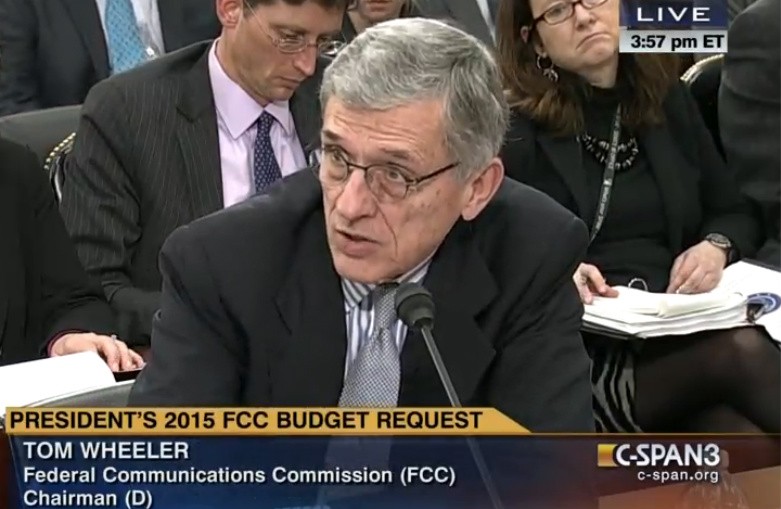
FCC Chairman Wheeler and Commissioner Pai Duke It Out Over Broadcast Diversity
On Tuesday, Federal Communications Commission Chairman Tom Wheeler and Commissioner Ajit Pai went head to head over joint sales agreements (JSAs).
Companies like the Sinclair Broadcast Group have used JSAs and other outsourcing arrangements to skirt FCC rules and snap up TV stations nationwide. In some cases a single company operates as many as four stations in a given market.
But on March 31, the FCC will vote on whether to close the loophole that has allowed companies to use JSAs at the expense of viewers and minority owners.
Wheeler and Pai met with a House Financial Services Subcommittee to go over the Commission’s 2015 budget and wound up talking substance over dollars. In a departure from traditional testimony format, Wheeler and Pai sat down with members at the same table and engaged directly with each other.
And it was epic.
The topic of JSAs arose when Rep. Tom Graves asked both men point blank whether the Commission’s proposal to close the loophole would lead to more minority ownership or less.
Chairman Wheeler, armed with Free Press data, came out swinging.
The chairman noted that in 2006, there were 19 African American-owned broadcast TV stations. The number of JSAs has since tripled, and today there are only four such stations.
The chairman did not get a chance to point out that those 19 stations passed all of their revenues and profits to their black owners. In contrast, three out of four of today’s “owners” pass 90 percent of their profits to Sinclair or other companies operating JSAs.
Wheeler did note that JSAs and other sharing arrangements are to blame for the loss of diverse independent voices, and he said that the Commission must stop the bleeding to promote minority ownership.
Commissioner Pai disagreed. He offered anecdotal evidence from Mississippi’s Tougaloo College station WLOO, which is operated by Raycom, to suggest that JSAs actually benefit minorities. In Pai’s view, the only way to cure what ails minority ownership is to administer more of the disease.
Chairman Wheeler had an anecdote of his own. Without referencing Sinclair Broadcast Group by name, he denounced its tactic of passing station licenses to friends and family members to evade FCC rules and rake in all of the cash from those stations.
Things heated up when Rep. Jose Serrano asked Commissioner Pai to reconcile his view that sharing agreements help minority ownership with the fact that nearly every minority media group, including the Minority Media and Telecommunications Council, the National Hispanic Media Coalition and the National Association for Black Journalists, has decried these arrangements.
Commissioner Pai responded with yet another anecdote. He told the story of Entravision, which operates the only Spanish-language news station in Kansas. Entravision has said that if it couldn’t operate its JSA with Schurz Communications, it would stop doing the news.
Entravision reaped $133 million in profits in 2013 and enjoys higher profit margins than many of its peers. It’s not clear whether the company couldn’t actually afford to do the news in a post-JSA world or would simply refuse to do so. But it’s irrelevant: Chairman Wheeler assured Commissioner Pai that the proposed rule would not affect good actors.
Pai was not convinced and said that Wall Street had spoken, pointing to how broadcasting stocks have tanked over the last few weeks.
And then the chairman delivered the knockout punch:
“That’s a whole different issue. Are we talking about encouraging minority voices or protecting Wall Street barons?”
That’s the short of it, folks. A policy that has decimated minority ownership over the last eight years simply isn’t broadcast diversity’s saving grace or a path to wealth and independence for minority owners.
JSAs and other sharing arrangements accomplish only one thing: They pad the profits of broadcasting conglomerates.
Watch the debate between Wheeler and Pai: